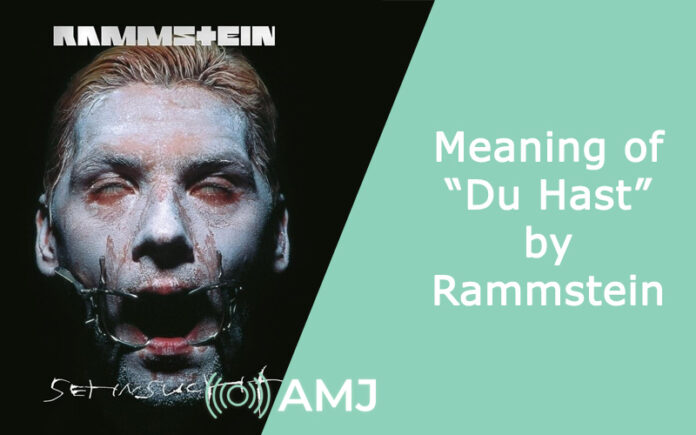It’s not every day that you come across a popular German band that manages to make it big. However, that’s exactly what happened with Rammstein when they released the song “Du Hast”. The opening lines of the song, “Du. Du hast. Du hast mich”, which translates to “You. You have. You have me,” created a rave following its release in 1997.
Surprisingly enough, the release of the song was the big break that the band needed to take off in the Western mainstream music industry. Besides the studio release, the song also featured in The Matrix, further extrapolating its success.
Despite the popularity of the song, it managed to secure the attention of the listeners and the creators of the song left it for open interpretation.
What is the Homophonic Meaning of the Song?
With the kind of popularity that the song got, it wasn’t surprising that it received equally the same amount of confusion.
Let us explain why.
The term “du hast” is a homophone. This means that while in German, the phrase means “you have” when translated to English, the meaning turns to “you hate”.
This left a lot of the listeners confused, who failed to decipher what the actual meaning of the song was and what the band wanted to convey. Given that the song is German, it is safe to say that we’d have to prioritize the German meaning of the song over the English meaning.
When further explored, the lyrics of Du Hast are very scanty and repetitive. The major lines in the song focus on the repetition of the phrase “You, you have, you have me / You have me, you asked me / You asked me, you asked me and I said nothing.”
However, if we had to break down the meaning, it is believed that Du Hast explores different emotions of unhappiness in marriage, potential divorce, and separation in a long-term relationship. If you don’t know the meaning of the song, it is difficult to establish what it means.
Does the song contain German Wedding Vows?
Now, given that we explained the actual meaning of the song in brief, you might be wondering, “Why would people use it during their wedding vows?”
There is a phrase in the song, “Wollen Sie einander lieben und achten und die Treue halten bis dass der Tod euch scheidet?”, which translates to “Do you want to love and respect one another and remain faithful until death do you part?”
So, given how the lyric translates, it isn’t surprising that the song harbors such a special emotion. Despite the language barrier, there is a reason the song has gained the amount of popularity that it has.
Conclusion
If you have been wondering about the true meaning of Du Hast by Rammstein, we hope this manages to give you a brief understanding. Despite the melancholy nature of the song, it is one of those gems that keep on getting better the more you listen to it.












![Index of Money Heist [Season 1, 2, 3 & 4 – All Episodes, Cast and Plot] Index of Money Heist](https://www.asiamediajournal.com/wp-content/uploads/2021/05/Index-of-Money-Heist-3-100x70.jpg)